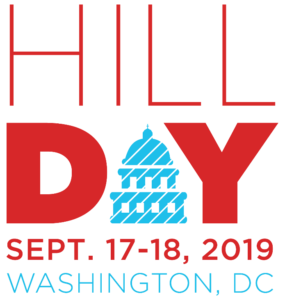Mood disorders can affect anyone regardless of cultural background, gender, identity, race, color, or ethnicity. Members of specific communities and identities often must combat stereotypes associated with their background to justify their need for mental health care. Since 2008, July has been recognized as Minority Mental Health Month. DBSA is participating by bringing awareness to the disparities in mental health care that affect marginalized groups. By highlighting the stories of those in the DBSA community who have faced these challenges, we hope to broaden the conversation and make changes to our health care system. Read stories and find resources at DBSAlliance.org/MMHM.
Minority Mental Health Month
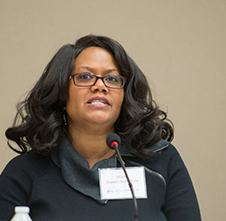
Allison Francis Barksdale’s Story
As an African American woman living with bipolar disorder, I am often troubled by the distorted images I see portrayed in the media of people with mental health illness. Most often actions are dramatized for greater emotional appeal, often inducing fear. The suggestion of fear keeps people from getting the help they need or helping others. These images are especially harmful to those in minority communities where I still see a preference for denial of the truth.
Join Us for Hill Day 2019
On September 17-18, DBSA invites you to join the National Council for Behavioral Health for Hill Day 2019 in Washington, D.C.
Hill Day provides hundreds of peers, family members, providers, and community stakeholders access to sessions and workshops on federal behavioral health policy, followed by visits with their elected officials on Capitol Hill to advocate for better resources for mental health and substance use disorder treatment across the country.
Registration for the Capitol Hill visits is free and includes breakfast on Wednesday, September 18th.
Past years’ Hill Day participants have played a crucial role in securing congressional support for the Excellence in Mental Health and Addiction Treatment Expansion Act, funding for Mental Health First Aid, and much more! Add your voice to the movement for a stronger U.S. mental health system by registering today.
With 20 national partner organizations, Hill Day is the largest behavioral health advocacy event of the year.
For more information, visit the National Council’s Hill Day website.
When registering, be sure to list DBSA as the organization you are representing. We plan to host a meet and greet with peers and advocates who attend on behalf of DBSA. Listing DBSA as your organization will enable us to contact you with information. Travel and accommodations are at your own expense.
Meet Chapter Relations
Your new Chapter Relations Team (CRT) is here and ready to help with your chapter needs. Your needs could include starting new chapters, helping with reaffiliation, supporting educational events or advocacy efforts. Meet Carla DeFlorio, DBSA’s new Chapter Relations Director and Jill Burgos, your new Chapter Relations Manager.
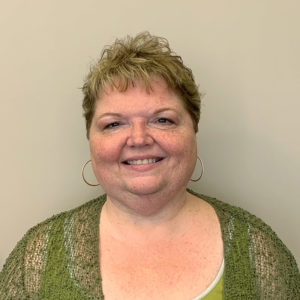
Carla DeFlorio started working at DBSA on June 18, 2019. Carla brings over twenty-five years of experience in not-for-profit and association management. She has served as a manager of director of chapter relations and services for the American Society of Safety Professionals, the Academy of General Dentistry, and the Healthcare Financial Management Association as well as the CEO of the Certification of Disability Management Specialists Commission. Carla has an MBA and has been a Certified Association Executive (CAE) for the past 16 years. Carla has a passion for working at the grassroots level and helping chapters to develop and is excited to be at DBSA!
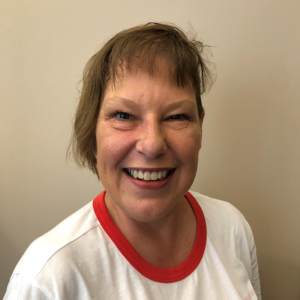
Jill Burgos began her DBSA journey this week! Jill is also a seasoned professional with over ten years of chapter relations and membership support for the International Association for Healthcare Security and Safety, the National Brownfield Association, the Dystonia Medical Research Foundation and the American Society of Safety Professionals. Jill obtained her BA from DePaul University and obtained an MBA. Jill finds chapter work very fulfilling and she is looking forward to working with chapter leaders to grow their chapters and better serve their constituencies and communities.
Carla and Jill can be contacted as follows:
Carla DeFlorio
cdeflorio@dbsalliance.org
Jill Burgos
jburgos@dbsalliance.org
Ask the Doc
Use Your Lived Experience to Work as a Peer Support Specialist
Being surrounded by like-minded people who have gone through similar struggles and know the challenges firsthand of living with a mood disorder can be validating. Peer support, an evidence-based model of care, can take multiple forms. One example can be found among the services offered by the DBSA affiliate chapters that offer facilitated peer support groups. Integrating a peer support specialist into a mental health care delivery team expands this model.
For many, it can be hard to believe that a doctor understands their experiences; but, working with a peer support specialist who has similar lived experiences can ease the first steps toward healing. These paraprofessionals receive training and are often required to be certified by their state certification board. DBSA offers a peer-specialist course that is recognized by the Department of Veterans Affairs and the Illinois certification board.
If you are seeking a profession where your lived experience is valued, consider enrolling in the DBSA Peer Specialist 5-week Course. The course includes 5-day in-person course work at the DBSA headquarters in Chicago along with four weeks of distance learning modules that cover all of the current SAMHSA-identified peer specialist core competencies.
Please contact Lisa Goduco with any further questions at Lgoduco@dbsalliance.org or (312) 988-1168.
Note from Michael
During my conversations with people involved in DBSA—primarily through our chapters and state organizations—I have heard from many individuals from the African American, Latino, and Asian American communities. Our discussions cover a broad array of topics: value of peer support, challenges finding a doctor or the right treatment, among others. I’ve had the honor of hearing many personal stories—challenges and triumphs related to their journeys toward recovery. Inevitably, someone will express with gratitude that their DBSA support group saved their life.
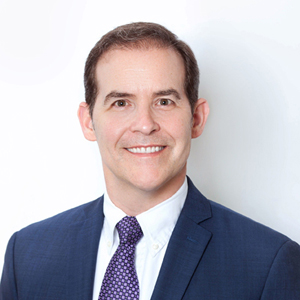
More often, however, individuals from minority communities will also reveal the level of stigma that they experience. While most people living with a mental health condition mention the impact of stigma, people of color share that there are additional layers of stigma-related challenges they face. I’ve met with African American members of a DBSA chapter who talked about the barriers to talking with their family about their depression and the response to “pray it away”. I’ve talked with individuals in the Asian American community who frequently talk about the degree of denial loved ones live with—as if talking about a mood disorder is taboo. Members of various Latino groups will speak of not only cultural barriers that make it difficult to seek support, but language barriers that create challenges for them and their families to connect with others.
Minority Mental Health Awareness Month is intended to improve the atmosphere and ability for people of color living with a mood disorder to share their experience, make talking about bipolar disorder or major depression less taboo, and to normalize the conversation people have with their families, friends, clergy, and community. I invite you to read the stories shared by Allison, Erica, and Montaja. I believe you’ll find them as inspiring as I did.
DBSA wants to better understand what is important to minorities who live with a mood disorder.
As a follow-up to our 2018 Supporting Wellness survey, we are scheduling discussion groups specifically for African American, Asian, and Latinos in the coming weeks. These meetings will occur in North Carolina, Chicago, and San Francisco. If you would like to learn more or participate, please email us at Advocacy@DBSAlliance.org.
Please check out additional resources specific to Minority Mental Health Awareness and share them with others.
The Essential Guide To Maintaining Friendships With Bipolar
Friendships require cultivation and cooperation to thrive. But when one friend also has to cope with a mood disorder, things can be even more complicated.
“Friends show their love in times of trouble, not in happiness,” ancient Greek poet Euripides once said. What was true in ancient times still holds true today. Our most valuable, most important friends are those who are there for us when we need them the most.
Wellness Tips
Keep breathing!
If you are ever in a situation where you feel your head is going to explode, step back and take slow, deep breaths. Let out your emotions in deep sighs as you exhale.
Cry it Out
Crying is okay. It helps manage your emotions so they don’t get out of control so easily.
Creative Activities
Creating something tangible, like a piece of art or music, can really help take your mind off things plus it gives you something to show for the time.


